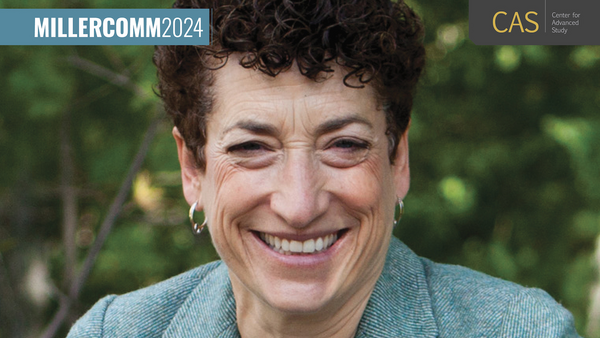
Talk: "How the Myth of the Free Market Has Blocked Climate Action" by Naomi Oreskes (CAS MillerComm)
- Event Type
- Lecture
- Sponsor
- Center for Advanced Studies, Department of Atmospheric Sciences, Certificate in Environmental Writing Program (iSEE), Department of Civil & Environmental Engineering, Department of History, Department of Physics, School of Earth, Society & Environment, Spurlock Museum
- Location
- Knight Auditorium, Spurlock Museum of World Cultures
- Date
- Oct 2, 2023 4:00 - 5:30 pm
- Views
- 85
- Originating Calendar
- Spurlock Museum - Event
In 1988, American climate modeler James Hansen testified in the US Congress that he and his team were 99% certain that man-made global warming was underway. Hansen’s testimony reflected decades of sustained scientific work predicting that burning fossil fuels would cause climate change; now, in 1988, he was saying that change was no longer a prediction, but a fact.
Hansen’s testimony was widely reported, including on the front page of The New York Times. When Vice President George H.W. Bush ran for President that year, he promised that, if elected President, he would bring the power of the “White House effect” to fight the “Greenhouse effect.” Four years later, political leaders from around the globe—including then-President Bush—gathered in Rio de Janeiro, Brazil, to sign the United Nations Framework Convention on Climate Change, committing its signatories to prevent “dangerous anthropogenic interference” with the climate system. The science was clear, it had been widely communicated, and political leaders had made a commitment to act. So what happened? Why didn’t we act when there was still a chance to stop climate change before it became the climate crisis?
In this talk, Professor Oreskes will show that a major part of the answer involves the role of corporate America in promoting the myth of the “free market” in order to prevent government regulation of dangerous practices and products, including fossil fuels. She argues that, to address the climate crisis at the necessary scale and rate, we must reject that myth and re-embrace the essential role of governments in addressing market failure.
Hosted by: Department of Atmospheric Sciences
In conjunction with: Certificate in Environmental Writing Program (iSEE), Department of Civil & Environmental Engineering, Department of History, Department of Physics, School of Earth, Society & Environment, Spurlock Museum
NAOMI ORESKES
Henry Charles Lea Professor of the History of Science and Affiliated Professor of Earth and Planetary Sciences at Harvard University.
An internationally renowned scientist and historian, Oreskes is a leading voice on the reality on anthropogenic climate change and the history of efforts to undermine climate action and scientific truth. She is the author of nine books, including, Why Trust Science? (2019) and Science on a Mission: How Military Funding Shaped What We Do and Don’t Know about the Ocean (2021), and over 150 scholarly and popular articles. Her opinion pieces have been appeared around the globe, including on The New York Times, The Washington Post, The Times (London), and the Frankfurter Allgemeine. In 2015, she wrote the Introduction to the Melville House edition of the Papal Encyclical on Climate Change and Inequality, Laudato Si. Her 2010 book with Erik M. Conway, Merchants of Doubt, has been translated into nine languages, sold over 100,000 copies, and made into a documentary film. In 2018, she became a Guggenheim Fellow, and in 2019 was awarded the British Academy Medal. Her new book with Erik Conway, The Big Myth: How American Business Taught Us to Loath Government and Love the Free Market, was published by Bloomsbury Press in February 2023.